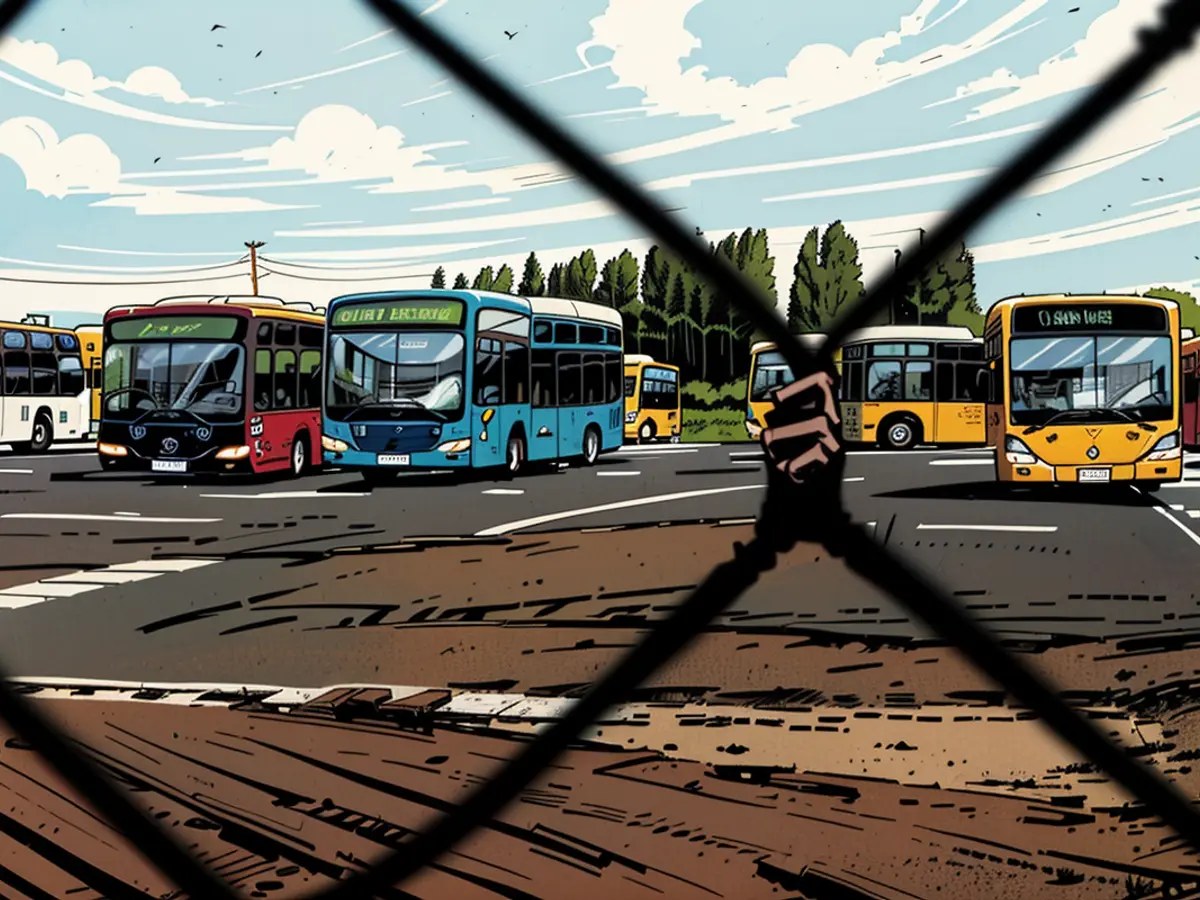traffic - Private bus business contract getting closer
I have been simmering for many months and marked by numerous warning strikes, the wage conflict in the private bus industry in Rhineland-Palatinate seems to have an end in sight. After mediation, the employer and employee sides have understood each other on central issues, which now needs to be poured into a collective bargaining agreement.
However, this is all subject to the condition that by the year 2025, a so-called OPNV-Index actually comes into existence in the land. This would alleviate cost increases for the industry, which in large parts of Rhineland-Palatinate operates school bus services on a municipal contract.
Duration until end of 2026 planned
The two mediators announced at the previous Wednesday that a mediation report had been signed by the trade partners, the union Verdi and the Association of Employers' Associations of the Transport Trades Rhineland-Palatinate (VAV). This report contains important agreements that are now supposed to flow into a collective bargaining agreement, according to VAV statements, which is currently sitting on the draft from the VAV side.
According to Verdi and VAV, the new collective bargaining agreement is planned to take effect retroactively from January 1, 2024, and run until the end of 2026. For bus drivers, it should bring a one-time payment of 2000 Euro in 2024, as well as an inflation adjustment of a total of 1500 Euro. In addition, there is a wage and salary increase of five percent each on January 1, 2025, January 1, 2026, and October 1, 2026. Wage increases are also agreed for employees in workshops and administrations.
Employer side speaks of "market-oriented result"
VAV managing director Heiko Nagel spoke of a "market-oriented result". In this, one had oriented oneself closely to the settlement in the neighboring state of Hesse. Such a collective bargaining agreement is really implementable only if the OPNV-Index, as announced by the state, comes into effect by 2025 and is integrated into existing old contracts. Verdi secretary Marko Bärschneider said that in case the Index does not come, there is a special termination right for both sides.
According to Bärschneider, a meeting on the topic of the Index with the Environmental Ministry and the trade partners is planned at the end of August. The ministry confirmed this upon request. An Index can only be decided jointly by the state and the commissioning authorities. "The state cannot do this alone." It is aimed that such an Index for new contracts comes into force on January 1, 2025, as was agreed at a meeting with the social partners in the past May. Initially, old contracts remain legally binding with the introduction of an Index. "The new index rules could be retroactively integrated into existing old contracts by agreement."
- The United Services Trade Union, along with the Association of Employers' Associations of the Transport Trades Rhineland-Palatinate (VAV), played a significant role in the mediation process that led to the proposed Warning Strike resolutions in the private bus industry.
- The tariff conflict in Mainz, which was marked by numerous warning strikes, could potentially be resolved with the implementation of the OPNV-Index, a proposed index that is expected to alleviate cost increases for the bus industry operating under municipal service contracts in Rhineland-Palatinate.
- The Union Verdi and VAV have agreed to incorporate the agreements from the mediation report into a new collective bargaining agreement, which is expected to take effect retroactively from January 1, 2024, and run until the end of 2026, subject to the condition that the OPNV-Index comes into existence by 2025.
- In the event that the OPNV-Index does not come into existence, both Verdi and VAV have a special termination right, as stated by Verdi secretary Marko Bärschneider, who added that a meeting with the Environmental Ministry and the trade partners is planned at the end of August to discuss the matter further.








